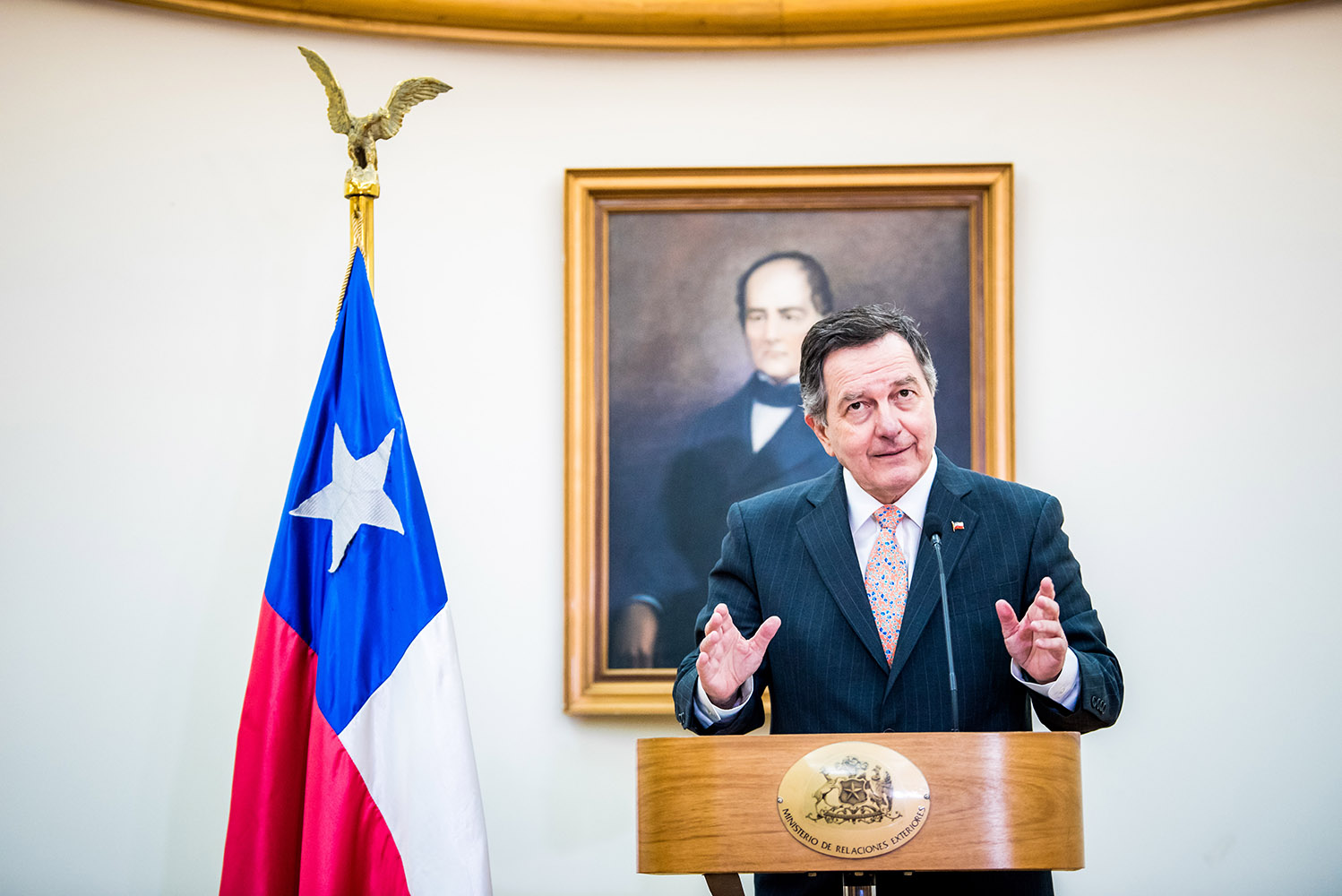"Chile is not going to adhere to anything that can be used against it and that threatens our sovereignty"

The Minister of Foreign Affairs, Roberto Ampuero, referred today to the decision of the Government of Chile not to sign the Global Compact for Migration. The Chancellor stated that "the text discussed in the United Nations clashes with Chile's norms to have a safe, orderly and regular migration".
In this regard, he indicated that this is due because "it does not establish with total clarity the distinction between a regular migrant who arrives to our country, settles down respecting scrupulously the laws that we have given and an irregular one that enters without respecting the norms, probably through unofficial passages".
Another element consigned by the Minister was that the pact flexibilizes the possibility of changing status by migrants. "You come to this country with a given explanation, status or condition and you can change it. You arrive as a tourist and you can apply for a work visa. That doesn't convince us as a country," he said.
The Secretary of State also said that since the "beginning of this Government, clear rules have been established here to have an orderly, safe and regular migration", with the objective of "facing an uncontrolled and disorderly migration at the moment when the Government of President Sebastián Piñera assumes its functions".

"Anyone is free to leave their country, they have the right to do so, migrants have rights, but each country has the right and is also sovereign to set its own migration rules," he said. "Chile has open doors for those who want to come to work, to contribute, to integrate into our society, respecting of course its laws. But it has completely closed doors to those who seek to commit crimes or violate or circumvent our laws and that is something that Chile and this government is not going to renounce," said the foreign minister.
He also assured that "although it is not a legally binding agreement, Chile is not going to adhere to anything that can be used against it in international courts and that threatens the sovereignty of the Chilean state". In this sense, he added that "when Chile signs a document, approves some document and gives its word, it is its word that leaves it pawned and then the country, its Government, the President, the Chancellor, take the appropriate measures so that the sovereignty of the country is not affected and also so that it is known that what one supports, signs and recognizes is going to be respected and honored in its entirety and if the conditions are not met, that is not signed".
The Minister recalled that on migration issues, Chile has signed to date the Universal Declaration of Human Rights and the International Convention on the Protection of the Rights of All Migrant Workers and their Families. "Both texts recognize the right of people to leave and return to their country and the duty of that country to receive them," he explained.
In addition, he indicated that "the United Nations has produced three texts on migrations: the New York Declaration of 2016 and the declarations of the High Level Dialogues on Migration and Development of 2006 and also of 2013, principles of which are shared by Chile". Finally, he affirmed that Chile is part of the Sustainable Development Objectives of 2030, whose objective 10.7 speaks of "facilitating migration and the orderly, safe, adjustable and responsible mobility of people, including through the application of planned and well-managed migration policies".
"Nobody, I want to emphasize it, nobody can say that Chile is against mutilateralism or human rights and we can affirm that with all our strength and conviction. This is a permanent position of the State of Chile, of the Government and of course of this Ministry of Foreign Affairs," he concluded.











